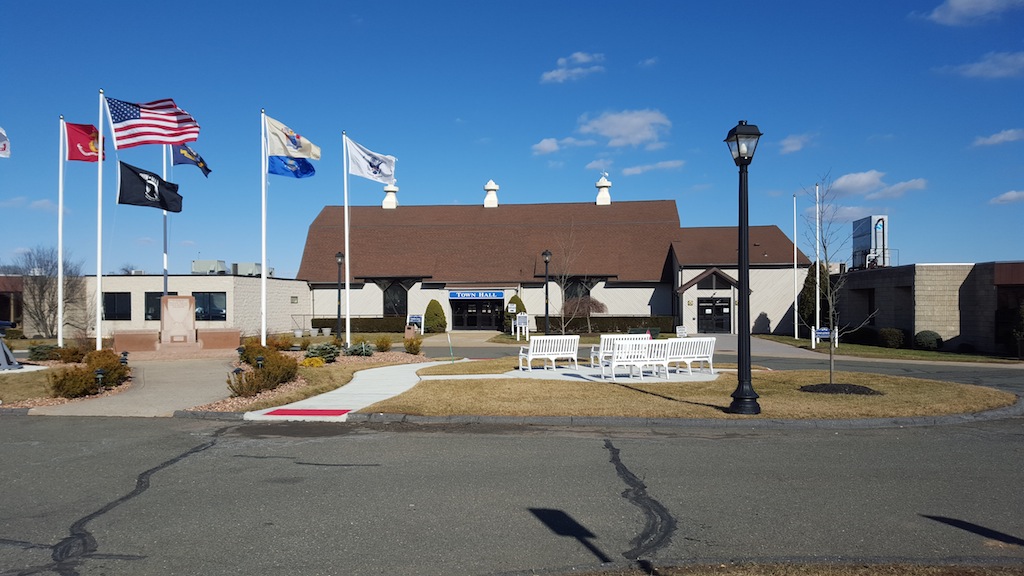A coalition of mayors from Monmouth County joined Gov. Phil Murphy as he addressed potential legislation that could change the way property taxes are paid in the Garden State.
Legislation proposed by Murphy, if passed in the state Assembly and Senate and signed into law by the governor, would allow taxpayers to make what are being described as charitable contributions to their municipal government. Those payments would serve the same purpose as property taxes and fund municipal services such as local government and schools.
Murphy was joined by mayors Jonathan Hornik of Marlboro, Fred Tagliarini of Aberdeen, Christopher Siciliano of Ocean Township, Edward Donovan of Manasquan, Matt Doherty of Belmar and Mike Ryan, a former mayor of Lake Como, during a visit to Marlboro Town Hall on Feb. 9.
Murphy has said he believes the shift to charitable contributions to fund local services would have the effect of allowing taxpayers to regain certain tax advantages that were lost when President Donald Trump signed the Tax Cuts and Jobs Act of 2017 into law in December. The act capped the local property tax deduction in the federal tax code.
“The reduced state and local tax deduction has the potential to significantly and negatively impact the value of the greatest single investment most families ever make, and that is their home,” Murphy said.
“We have a way to protect our property taxpayers while also ensuring municipalities have the resources to deliver the essential services. It is a way to provide immediate relief to those taxpayers already worried about their 2018 federal tax plan,” the governor said.
According to Murphy, more than 30 other states already have programs in place with approval from the U.S. Internal Revenue Service that allow taxpayers to make charitable contributions for certain programs the states deem important in exchange for up to a dollar to dollar reduction in their taxes.
“If we do this right, and doing it right is important, working and middle class families as well as seniors could retain most, if not all of the deduction and tax benefit they currently enjoy,” Murphy said.
“This will not solve New Jersey’s long, festering property tax crisis. I remain as committed and our administration is as committed as ever to working with mayors, with members of the Legislature, with freeholders and with other leaders around the state on long-term property tax relief, but that is not going to happen overnight.
“We are taking on a decades old, if not century old problem. As with many of the challenges we face, taking on the entrenched status quo takes time. … it takes a willingness to put politics aside in favor of sound policy. While we work toward those long-term solutions, this is something we can do now to help our property taxpayers save as much as possible,” Murphy said.
Commenting on the issue, Hornik said, “New Jersey is not affordable, that is not news to anybody. We have high taxes. Our expenses on the municipal and state side are extremely high. Our pensions are suffocating us, they are unbearable.
“We are suffering from past administrations not doing what is right for the residents of New Jersey. It is not a Republican or Democrat issue. It is a New Jersey issue and we need to come together and solve it today.
“These (changes in the federal tax code) unnecessarily contribute to making New Jersey, and other states like New Jersey, less affordable and that is not a step in the right direction for any of us. Our governor has recognized this and is proposing a way so that all New Jersey residents can deduct their tax or tax equivalent payments from their taxes,” Hornik said.
In January, the Marlboro Township Council passed a resolution in support of Murphy’s legislative initiative.
In response to a question clarifying the role of the IRS in this matter, Murphy said the IRS has to affirmatively respond and either bless or not bless an initiative that is taken at a state level.
“With these other 30-plus cases, they have considered them and sanctioned them,” the governor said. “Our opinion is that if they can do it for those other cases, they can do it for (us) because the concept is very similar.”

